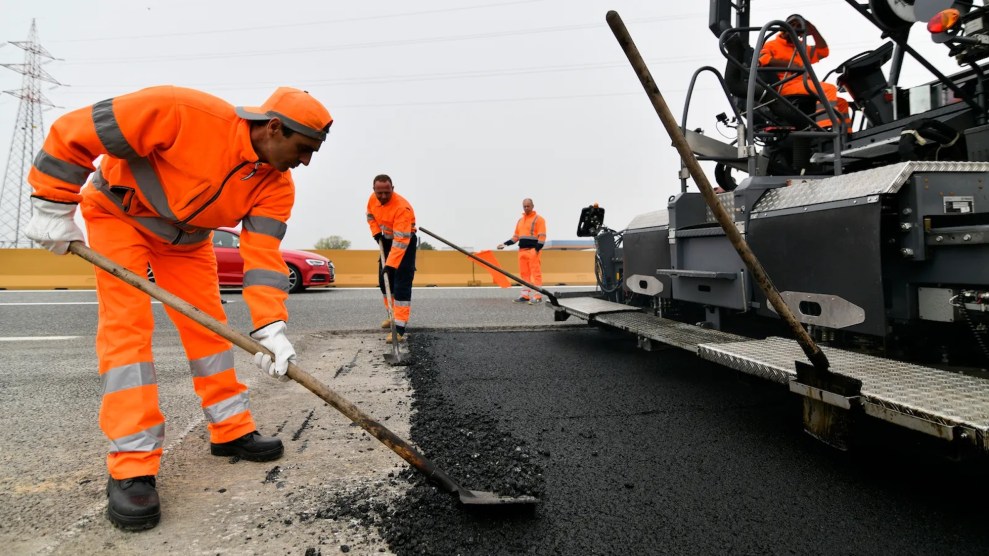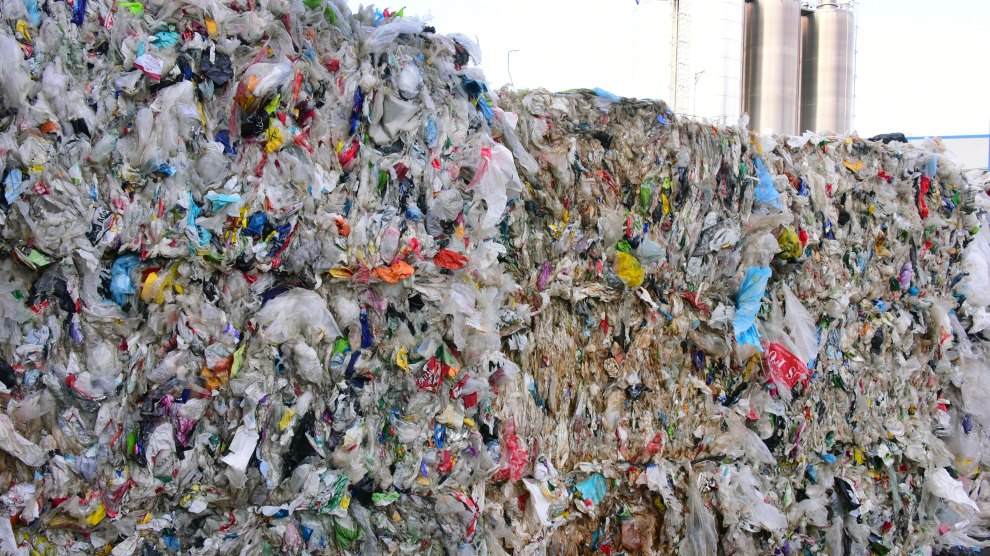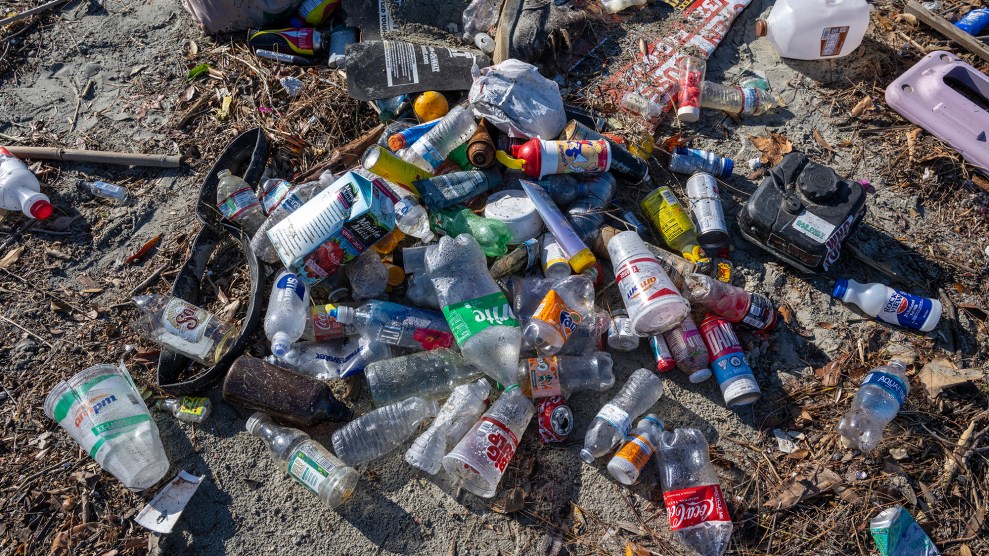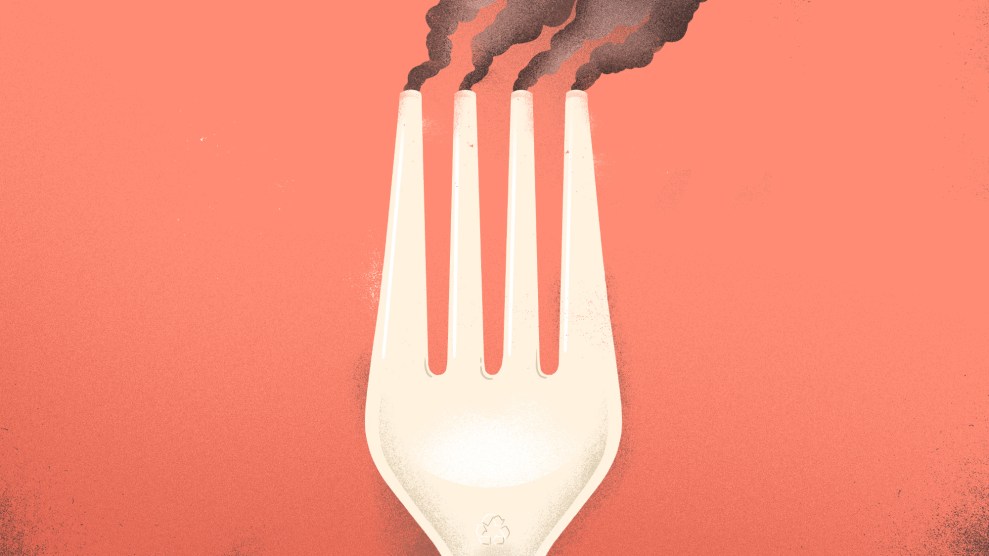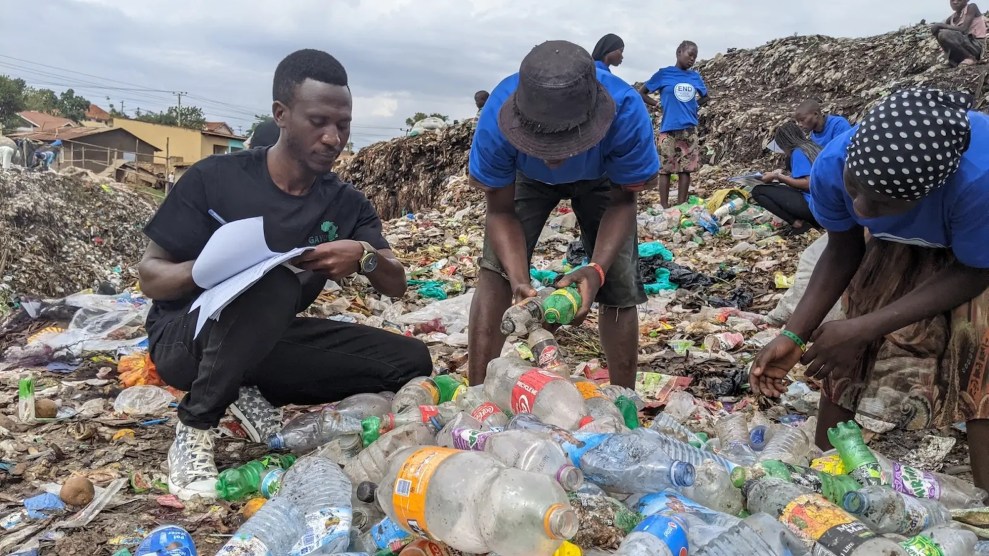
Courtesy Break Free from Plastic
This story was originally published by Grist and is reproduced here as part of the Climate Desk collaboration.
The more plastic a company makes, the more pollution it creates.
That seemingly obvious, yet previously unproven, point, is the main takeaway from a first-of-its-kind study published Wednesday in the journal Science Advances. Researchers from a dozen universities around the world found that, for every 1 percent increase in the amount of plastic a company uses, there is an associated 1 percent increase in its contribution to global plastic litter.
In other words, if Coca-Cola is producing one-tenth of the world’s plastic, the research predicts that the beverage behemoth is responsible for about a tenth of the identifiable plastic litter on beaches or in parks, rivers, and other ecosystems.
That finding “shook me up a lot, I was really distraught,” said Win Cowger, a researcher at the Moore Institute for Plastic Pollution Research and the study’s lead author. It suggests that companies’ loudly proclaimed efforts to reduce their plastic footprint “aren’t doing much at all” and that more is needed to make them scale down the amount of plastic they produce.
Significantly, it supports calls from delegates to the United Nations global plastics treaty—which is undergoing its fourth round of discussions in Ottawa, Canada, through Tuesday—to restrict production as a primary means to “end plastic pollution.”
“What the data is saying is that if the status quo doesn’t change in a huge way—if social norms around the rapid consumption and production of new materials don’t change—we won’t see what we want,” Cowger told Grist.
That plastic production should be correlated with plastic pollution is intuitive, but until now there has been little quantitative research to prove it—especially on a company-by-company basis. Perhaps the most significant related research in this area appeared in a 2020 paper published in Environmental Science and Technology showing that overall marine plastic pollution was growing alongside global plastic production. Other research since then has documented the rapidly expanding “plastic smog” in the world’s oceans and forecasted a surge in plastic production over the next several decades.
The Sciences Advances article draws on more than 1,500 “brand audits” coordinated between 2018 and 2022 by Break Free From Plastic, a coalition of more than 3,000 environmental organizations. Volunteers across 84 countries collected more than 1.8 million pieces of plastic waste and counted the number of items contributed by specific companies.
About half of the litter that volunteers collected couldn’t be tied to a specific company, either because it never had a logo or because its branding had faded or worn off. Among the rest, a small handful of companies—mostly in the food and beverage sector—turned up most often. The top polluters were Coca-Cola, PepsiCo, Nestlé, Danone, Altria—the parent company of Philip Morris USA—and Philip Morris International (which is a separate company that sells many of the same products).
More than 1 in 10 of the pieces came from Coca-Cola, the top polluter by a significant margin. Overall, just 56 companies were responsible for half of the plastic bearing identifiable branding.
The researchers plotted each company’s contribution to plastic pollution against its contribution to global plastic production (defined by mass, rather than the number of items). The result was the tidy, one-to-one relationship between production and pollution that caused Cowger so much distress.
Many of the top polluters identified in the study have made voluntary commitments to address their outsize plastic footprint. Coca-Cola, for example, says it aims to reduce its use of “virgin plastic derived from nonrenewable sources” by 3 million metric tons over the next five years, and to sell a quarter of its beverages in reusable or refillable containers by 2030.
By that date the company also aims to collect and recycle a bottle or can for each one it sells. Pepsi has a similar target to reduce virgin plastic use to 20 percent below a 2018 baseline by the end of the decade. Nestlé says it had reduced virgin plastic use by 10.5 percent as of 2022, and plans to achieve further reductions by 2025.
In response to Grist’s request for comment, a spokesperson for Coca-Cola listed several of the company’s targets to reduce plastic packaging, increased recycled content, and scale up reusable alternatives. “We care about the impact of every drink we sell and are committed to growing our business in the right way,” the spokesperson said.
Similarly, a PepsiCo representative said the company aims to “reduce the packaging we use, scale reusable models, and partner to further develop collection and recycling systems.” They affirmed Pepsi’s support for an “ambitious and binding” UN treaty to “help address plastic pollution.”
In a response provided after publication of this story, Altria said it believes the study is “fundamentally incorrect” because Phillip Morris USA operates only in the US, yet the study includes data from more than 80 countries. “So, it is impossible for Altria and PM USA to be responsible for 2 percent of global branded plastics pollution this study reports. In fact, for the US data, Altria is not on the list of the top companies, further demonstrating this study is inaccurately attributing plastic waste found internationally to our companies.”
Two of the other top polluting companies did not respond to a request for comment.
It’s worth noting that many of the companies’ plans involve replacing virgin plastic with recycled material. This does not necessarily address the problem outlined in the Science Advances study, since plastic products are no less likely to become litter just because they’re made of recycled content. There’s also a limit to the number of times plastic can be recycled—experts say just two or three times—before it must be sent to a landfill or an incinerator. Many plastic items cannot be recycled at all.
Richard Thompson, a professor of marine biology at the University of Plymouth in the UK, commended the researchers for making “a very useful contribution to our understanding about the link between production and pollution.” He said the findings could shape regulations to make companies financially responsible for plastic waste—based on the specific amount they contribute to the environment.
The findings could also inform this week’s negotiations for the UN global plastics treaty, where delegates are continuing to spar over whether and how to restrict production. According to Cowger, if the treaty really aims to “end plastic pollution”—as it states in its mandate—then negotiators will need to think beyond voluntary measures and regulate big producers.
“It’s not going to be Coca-Cola or some other big company saying, ‘I’m gonna reduce my plastic by 2030, you’ll see,’” Cowger told Grist. “It’s gonna be a country that says, ‘If you don’t reduce by 2030, you’re going to get hit with a huge fine.’”
